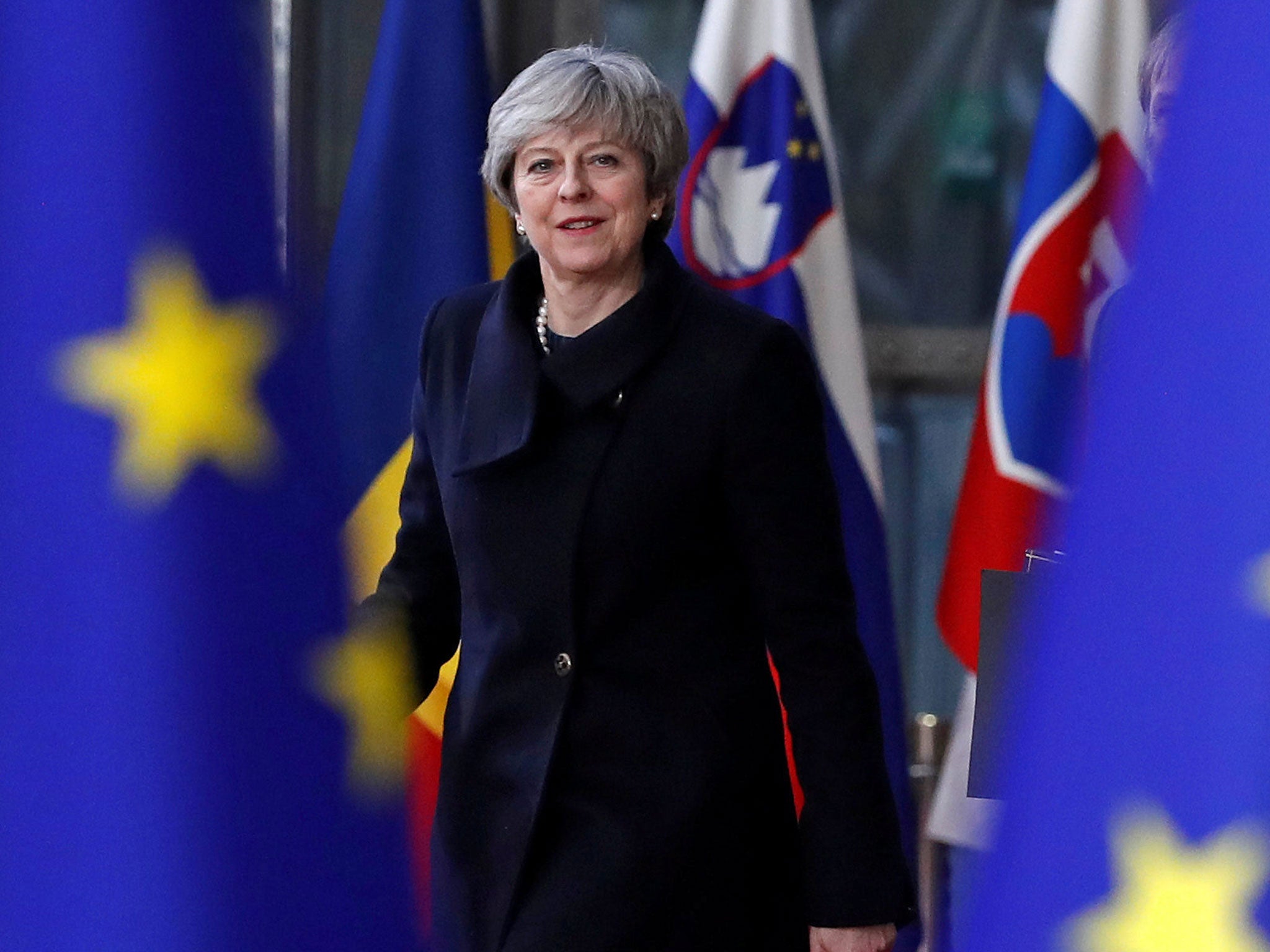Theresa May refuses to guarantee EU rules for 48-hour working-week limit will survive Brexit
Jeremy Corbyn urges Prime Minister to ‘face down’ cabinet ministers planning a ‘race to the bottom’

Your support helps us to tell the story
From reproductive rights to climate change to Big Tech, The Independent is on the ground when the story is developing. Whether it's investigating the financials of Elon Musk's pro-Trump PAC or producing our latest documentary, 'The A Word', which shines a light on the American women fighting for reproductive rights, we know how important it is to parse out the facts from the messaging.
At such a critical moment in US history, we need reporters on the ground. Your donation allows us to keep sending journalists to speak to both sides of the story.
The Independent is trusted by Americans across the entire political spectrum. And unlike many other quality news outlets, we choose not to lock Americans out of our reporting and analysis with paywalls. We believe quality journalism should be available to everyone, paid for by those who can afford it.
Your support makes all the difference.Theresa May has repeatedly refused to guarantee that EU rules to limit the working week to 48 hours will survive Brexit, as the Cabinet debates the controversy.
Labour MPs lined up to demand answers on whether the restrictions would be kept, amid suggestions that Brexiteer ministers want to abandon them.
In reply, the Prime Minister said the rules – known as the working time directive, which have operated in the UK since 2003 – would be pasted onto the UK statute book before Brexit day in 2019.
But, on the Government’s plans after 2019, she would only say that she was committed to “maintaining and enhancing workers’ rights” in general.
Jeremy Corbyn urged her to “face down” cabinet ministers who he accused of planning to “deregulate our economy” in a “race to the bottom”.
In her statement, which followed the EU agreeing the negotiations can move onto phase two, Ms May argued the country was now “well on our way to delivering a smooth and orderly Brexit”.
And she raised eyebrows by saying the UK would be “leaving” the common agricultural policy and common fisheries policy in 2019.
Michael Gove, the Environment Secretary, is pushing for an early exit, fearing quotas will otherwise be stitched up without the UK having a seat at the table.
However, Ms May acknowledged that whether the UK would still continue to abide by the policy during a two-year transition period was a “matter for the negotiations”.
In the same way, she argued the UK would be “formally out” of the EU customs union and single market. The EU will insist it must “continue to participate”, in order to secure a transition.
Tim Farron, the former Liberal Democrat leader, warned: “The Government is going to sacrifice the family farm and cripple British farming, if they switch off the common agricultural policy without a plan to replace it.”
The clashes came after an “inner cabinet” finally debated what final Brexit deal Britain should aim for. The full Cabinet will do the same on Tuesday.
Some ministers pushing for maximum “divergence” from EU regulations are believed to be eyeing up the working time directive and the 48-hour rule.
It states that the average working time should not exceed 48 hours for each seven-day period, although it is possible for works to opt out.
Chuka Umunna was among at least six Labour MPs who spoke up, urging Ms May to “guarantee that, post-Brexit, none of the working time regulations, importantly the 48-hour working week, will be done away with by her Government”.
The Prime Minister replied: “Under the EU Withdrawal Bill, we are bringing these rights into UK law. I have said that we will maintain workers’ rights, and indeed enhance workers’ rights.”
During the 90-minute session, Ms May faced some backbench unease, including from Jacob Rees Mogg, who urged her to refuse the EU’s tough negotiating stance.
She should “model herself on her predecessor, the late noble Baroness Thatcher, and show real metal and steel in rejecting these rather hostile negotiating terms from the European Union”, Mr Rees Mogg said.
The Prime Minister was also asked if she would sack Foreign Secretary Boris Johnson, after his weekend warning that the UK could become a rule-taking “vassal state”, but replied: “No.”
Join our commenting forum
Join thought-provoking conversations, follow other Independent readers and see their replies
0Comments